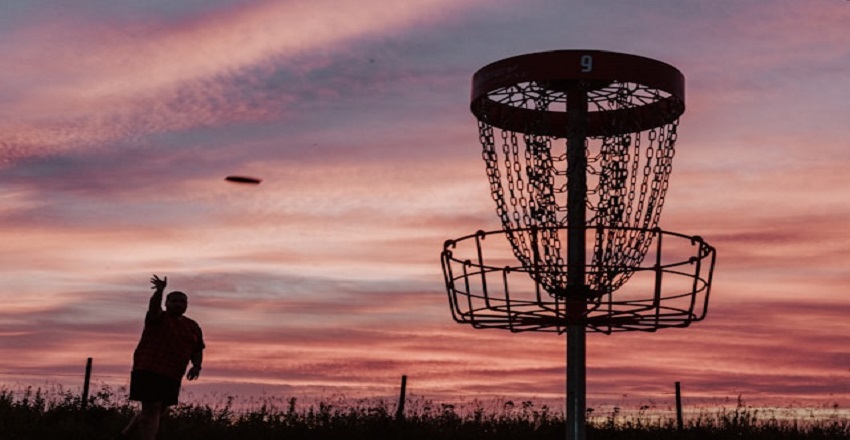
Why Sports and Outdoor Activities Are Essential for A Healthy Life
August 29, 2025In a world where technology keeps us glued to our screens and busy schedules keep us tied to our chairs, sports and outdoor activities are no longer just hobbies — they’re essential for physical health, mental wellness, and a fulfilling lifestyle. Whether it’s a casual weekend hike, a friendly game of football, or daily morning walks, making time for outdoor movement is one of the best investments you can make in yourself.
In this blog, we’ll explore why sports and outdoor activities are so important, how they affect different aspects of life, and how you can make them a regular part of your routine.
1. The Physical Benefits You Can’t Ignore
Sports and outdoor activities are natural ways to keep your body fit and strong without the monotony of a gym routine.
a) Improved Heart Health
Activities like jogging, swimming, and cycling raise your heart rate, improving cardiovascular endurance and circulation. This lowers the risk of heart disease, high blood pressure, and stroke.
b) Stronger Muscles and Bones
Weight-bearing exercises, such as hiking or playing basketball, strengthen your muscles and bones, improving posture and preventing age-related issues like osteoporosis.
c) Better Flexibility and Balance
Many outdoor sports involve varied movements — running on uneven trails, stretching during yoga, or maintaining balance on a paddleboard — which improve overall agility and coordination.
d) Weight Management
Active sports burn calories efficiently, helping to maintain or lose weight without extreme dieting. Plus, outdoor activities often feel more like fun than exercise, so you’re more likely to stick with them.
2. Mental and Emotional Well-being
A healthy lifestyle isn’t just about physical strength — your mind needs care too. Sports and outdoor activities are powerful mood-boosters.
a) Stress Relief
Fresh air, open spaces, and physical exertion help your brain release endorphins — the “feel-good” hormones. This naturally reduces stress and anxiety.
b) Improved Focus and Memory
Studies show that physical activity increases blood flow to the brain, enhancing memory, problem-solving, and focus.
c) Better Sleep Quality
Exposure to natural light helps regulate your sleep-wake cycle. Combine that with physical tiredness from activity, and you’ll enjoy deeper, more restorative sleep.
d) Boost in Self-Confidence
Achieving small milestones — running an extra kilometer, scoring a goal, climbing a tougher trail — builds confidence and a sense of accomplishment.
3. Social Connection and Teamwork
Sports and outdoor activities often involve other people, making them a great way to connect socially.
Team sports like football, basketball, or cricket teach cooperation, communication, and trust.
Group activities such as hiking clubs or outdoor fitness classes build friendships and a sense of belonging.
Even solo sports can become social — for example, joining running events or participating in community tournaments.
These interactions provide emotional support and help combat loneliness, especially in today’s increasingly digital world.
4. Skills That Go Beyond the Field
The benefits of sports and outdoor activities reach into everyday life.
Discipline and Time Management – Regular practice teaches consistency and planning.
Problem-Solving – Many sports require quick thinking and adaptability.
Perseverance – Overcoming challenges, whether it’s mastering a technique or enduring a tough hike, teaches resilience.
Leadership – Taking initiative in team settings builds leadership skills.
5. Choosing the Right Outdoor Activity for You
Not all activities are the same, and the “best” one depends on your interests, fitness level, and lifestyle.
For Beginners
Walking or light jogging in a park
Casual cycling
Yoga in an open space
For Fitness Enthusiasts
Running, swimming, or mountain biking
Rock climbing or martial arts training
Competitive sports like tennis or basketball
For Families
Weekend hikes
Playing frisbee or badminton in the yard
Beach volleyball during vacations
For Adventure Seekers
Surfing, paddleboarding, or kayaking
Paragliding or zip-lining
Trail running in challenging terrains
The key is to start with something enjoyable. If it feels like a chore, you’re less likely to stick with it.
6. How to Make Outdoor Activities Part of Your Routine
Starting is easy — staying consistent is where most people struggle. Here’s how to make it a lifestyle:
Set Clear Goals – Whether it’s walking 5,000 steps a day or training for a marathon, having a target keeps you motivated.
Create a Schedule – Block specific times in your calendar for activity. Treat them as important appointments.
Find a Partner – A friend or family member can keep you accountable.
Mix It Up – Rotate between different activities to prevent boredom and overuse injuries.
Track Your Progress – Use fitness apps, journals, or even simple checklists to celebrate milestones.
7. Overcoming Common Barriers
“I Don’t Have Time”
Even 15 minutes is better than nothing. A quick walk during lunch or a short yoga session before bed adds up over time.
“It’s Too Expensive”
Many outdoor activities cost little to nothing — walking, running, bodyweight exercises, or free community sports events.
“I’m Not Fit Enough”
Start small and build up gradually. Remember, everyone begins somewhere.
“The Weather is Bad”
Invest in weather-appropriate gear, or try indoor alternatives like community sports halls until you can get back outside.
8. Long-term Benefits of Staying Active Outdoors
Consistently engaging in sports and outdoor activities has lifelong rewards:
Reduced risk of chronic illnesses like diabetes, heart disease, and depression
Stronger immunity and better recovery from illness
Healthy weight maintenance
Higher energy levels and productivity
Enhanced quality of life in older age
It’s not just about fitness today — it’s about protecting your future health.
Final Thoughts
Sports and outdoor activities are a natural, enjoyable way to take care of your body and mind. They connect you with nature, build meaningful relationships, and teach valuable life skills. You don’t have to be an athlete or invest in expensive equipment — just stepping outside for a walk, joining a local game, or trying a new adventure can make a big difference.
So, lace up your shoes, grab your gear, and step into the fresh air. The benefits will follow you far beyond the field, court, or trail.
















